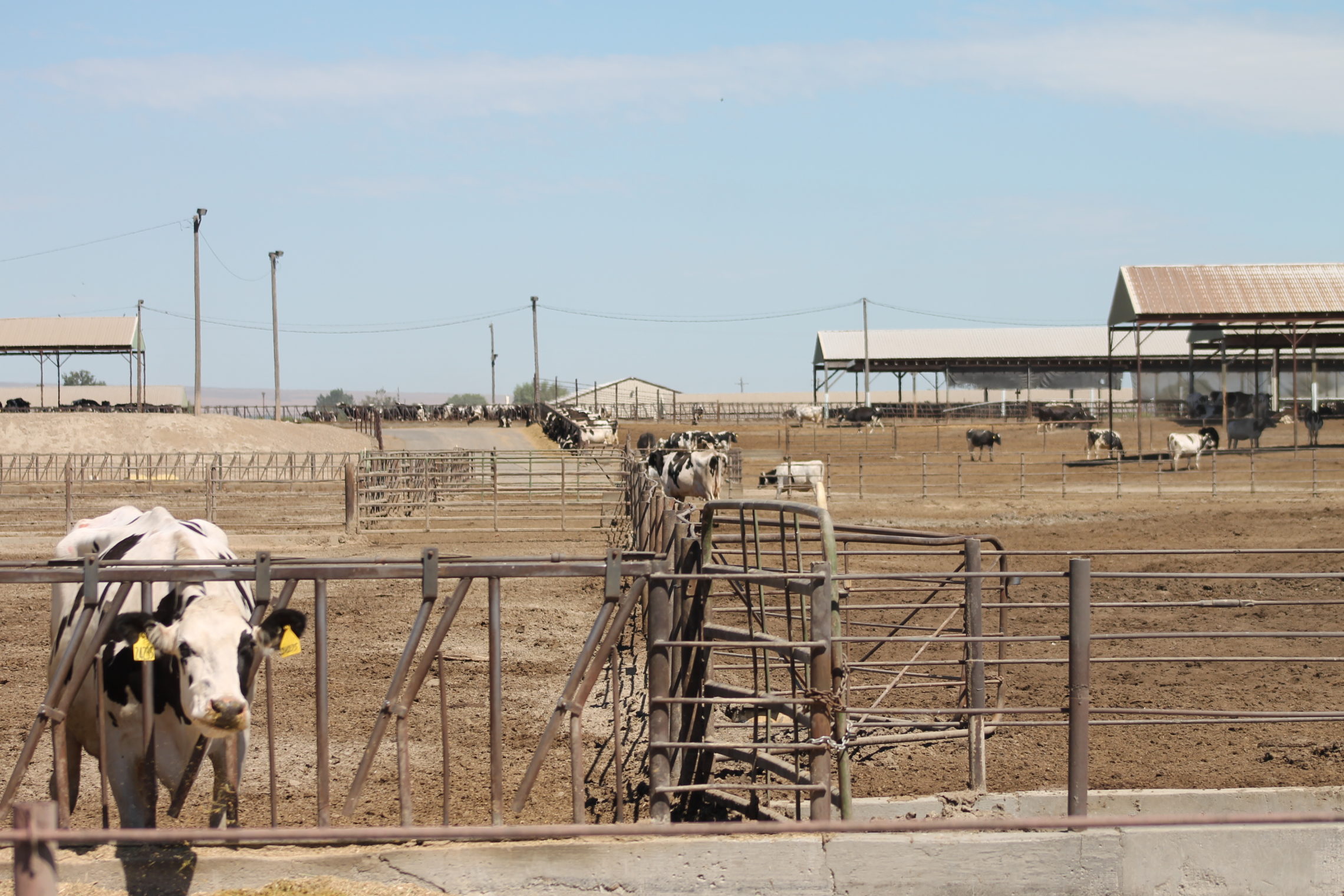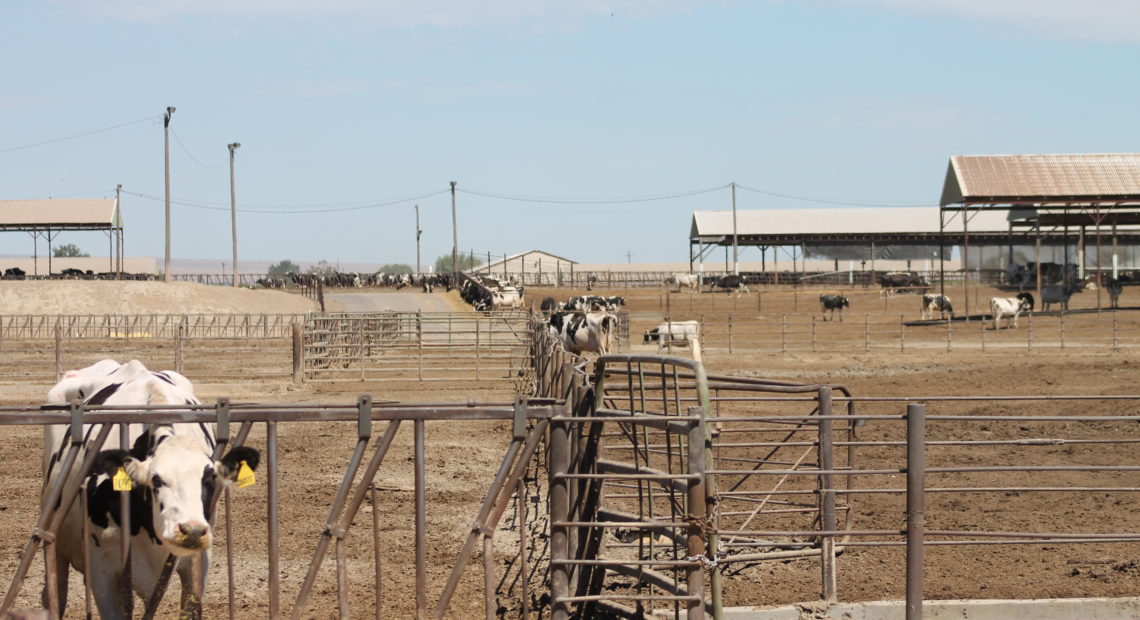
In MeToo Era, A Yakima Valley Dairy Worker Finds Her Voice
Listen
Driving on hot summer days in the Yakima Valley, you can smell it way before you see it: the pungent smell of dairy cows.
In Outlook, Washington, sits what was once the DeRuyter Brothers Dairy.
Maria Gonzalez started at DeRuyter in February 2015. At the time, she was the first and only woman working as a milker. Maria was in charge of bringing the cows out to a machine that would milk them. By her estimate, she and her coworkers would milk over 3,000 cows a day.
The dairy has been in Outlook, southeast of Yakima, since the 1970s. It was sold last summer to an out-of-state buyer. The physical dairy and cows are still there, but it’s no longer under Jake and Geneva DeRuyter, the previous owners.
For Maria, working there was a step up in career and pay. But it also meant facing sexual harassment from a male coworker.
It ended with losing her job.
COMPLIMENTS FROM “JOHN”
For Maria’s safety, we’re not using her harasser’s real name. For this story we’ll call him “John.”
It started with compliments. John would tell Maria he thought she was pretty. Then it progressed, saying he liked how she smelled. He would wink and bite his lips at her.
“Y entre más yo me quejaba, más lo rechazaba el muchacho, el más, lo mismo, siempre era lo mismo, más y más. Ya en Abril, empezó a ponerme las manos encima.”
“And the more I complained, the more I rejected the guy, the worse it got, it was always the same, more and more,” Maria says in Spanish. “In April [2015], he started to put his hands on me.”
Maria says she asked him to stop, but that only seemed to egg him on. She went to her supervisor at the dairy to complain. But she alleges nothing changed.
It didn’t help that the supervisor and John were in-laws.
Then the harassment escalated and became physical. In June 2015, John showed up to work inebriated and physically groped Maria. He grabbed her buttocks and pulled her hair. She pushed him off and went to find her supervisor. During that time, John got into a physical fight with another coworker and was put on leave for a week.
But then he came back to work.
A TOUGH WORK ENVIRONMENT
At the dairy, John bragged about having access to guns and hinted that he belonged to a local gang. According to Washington State Patrol records, he’s been arrested 14 times for crimes including theft, assault and a dangerous weapons violation.
Maria says she was used to a tough work environment. Her all-male coworkers often made sexual jokes about the cows or made comments that made her uncomfortable.
“Y en esos momentos cualquier mujer desea dejar el equipo, irse. Y no es justo para nosotras.”
“And in those moments, any woman wishes she could just drop the equipment and walk away. But that’s not fair to us,” Maria says.
She also believes the reason no one stood up for her was because they were also afraid of John.
Because of a past work-related injury, Maria left work for several months toward the end of July and all of August 2015. She was cleared by her doctor to return to work that September. That’s when she met with the same supervisor, the one related to John, to go over the shift schedule.
“Me enseñó el ‘schedule’ se puede trabajar con Óscar le dije que sí. Me mandó otro muchacho Ramón y dice que también si con el. Otro muchacho le dije que no quería trabajar y me dijo porque yo le dije yo ya te he dicho en muchas ocasiones que él me ha estado molestando que él me han dado tocando. Y me dijo el Lunes te hablo. Ese mismo día, recibí una llamada de la secretaría diciéndome que la supervisora dijo que ya no tenía trabajo ahí. Entonces yo le dije que porque y ella dijo no ya no tienes ya que tu lugar está ocupado.”
“He showed me the schedule. Can you work with Oscar? I said yes. Another guy Ramón? I said yes that’s fine,” Maria says, recalling her time coming back to work. “But then he showed me that guy [John]. So I told him that I did not want to work with him. And he said why? I told him I already told you many times that he has been bothering me, that he has been touching me. And he told me on Monday, I’ll call you. That same day, I received a call from the secretary telling me that the supervisor said that I no longer had a job there. I asked her why, and she said your position is taken.”
Maria was stunned. She didn’t expect to lose her job and wasn’t sure what to do next.
A FORMAL COMPLAINT
Friends and coworkers encouraged her to find a way to file a formal complaint. Maria ended up at the Northwest Justice Project. With their help, she filed a sexual assault protection order with the Yakima County Superior Court in March 2016.
Maria says she waited to file it because she didn’t know what she could legally ask for and didn’t have the recourse.
Out of court, Maria and the Northwest Justice Project reached a settlement and conciliation agreement with DeRuyter through the U.S. Equal Employment Opportunity Commission.
Jake and Geneva DeRuyter, the previous dairy owners, settled for $95,000 for emotional distress and $5,000 for lost wages, on the grounds of workplace retaliation and sexual harassment.
That settlement was signed in May 2018. By then, the DeRuyter Brothers dairy had already faced a $600,000 settlement for wages owed to 300 workers for overtime and missed meal and break times. The dairy had also been in the news for violating the Clean Water Act.
Maria now works at a different dairy, and she encourages others to stand up for themselves and seek help having their voices heard.
“Lo que quisiera decir es que las mujeres que están pasando por eso que vayan. Que busquen ayuda. Que no se queden calladas. Que no tengan miedo porque es lo más peor — el miedo.”
“I want to say that for the women who are going through this, to go look for help. Don’t stay silent,” she says. “Don’t be afraid, because that’s the worst – the fear.”
NOTE: Northwest Public Broadcasting reached out to DeRuyter representatives multiple times via phone and email over the course of three weeks seeking their input for this story. We have not yet received a response.
Copyright 2018 Northwest Public Broadcasting
Related Stories:
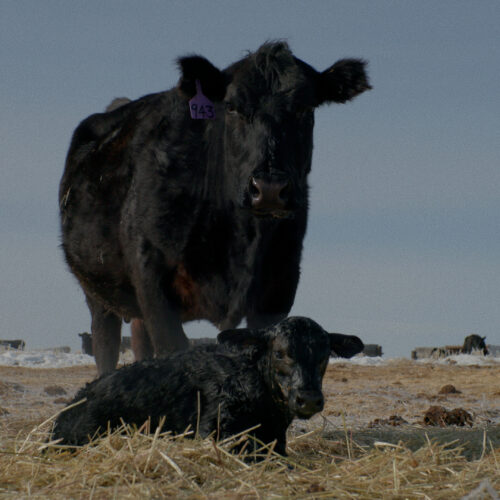
New film explores cattle mutilation mystery in Oregon
The film, “Not One Drop of Blood,” highlights the communities trying to solve the decades-long mystery of cattle mutilation. (Courtesy: Jackson Devereux and Lachlan Hinton) Listen (Runtime 6:00) Read Phineas
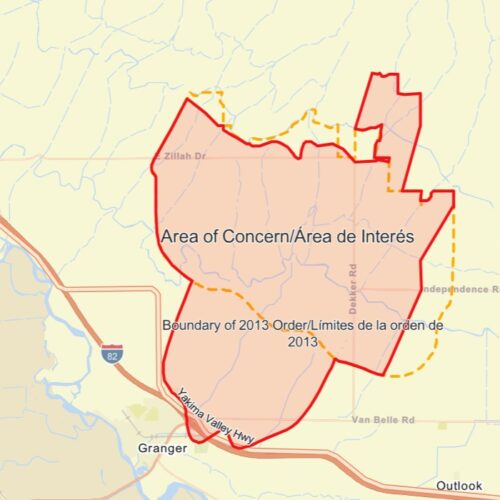
Federal judge orders Yakima County dairies to test wells, drinking water
A federal judge in Eastern Washington granted a preliminary injunction in a lawsuit that
involves over ten Yakima County dairy producers.
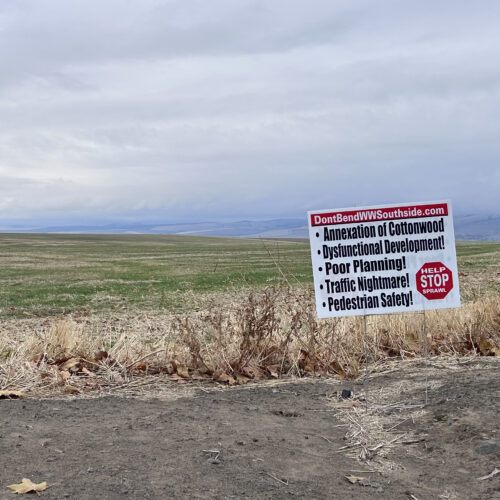
Housing developers file lawsuit against the city of Walla Walla
A sign near the proposed site of the Cottonwood Road development. (Credit: Jenna Heffernan) Listen (Runtime 1:02) Read A group of developers have filed a lawsuit against the city of

